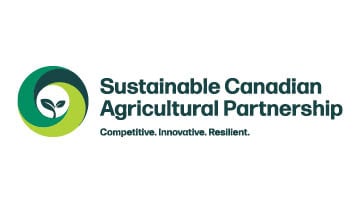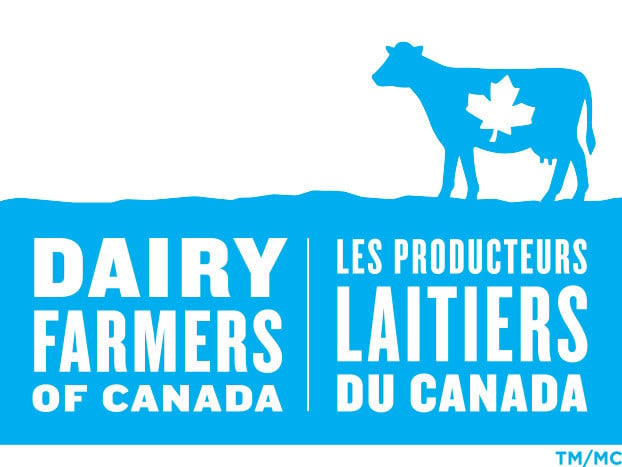Innovative best management practices to support the Canadian dairy industry in its net-zero goal
Ongoing

Project Overview
Dairy production systems are complex, as multiple important GHG are emitted, including methane (CH4) and nitrous oxide (N20), both of which have high global warming potentials. At the same time, cropping systems have the potential to sequester atmospheric CO2 and store it as soil carbon. Reaching net-zero will require emission reductions in all aspects of the dairy system, as well as increasing carbon storage. Mitigating emissions requires both directly reducing emissions from known sources and improving production efficiency.
The overall objective of this project is to address all major GHG emission sources and sinks in dairy farming systems (methane emissions from enteric fermentation and liquid manure storage, soil nitrous oxide emissions, and carbon sequestration), as well as farm management efficiencies and economics. This research aims at developing new best management practices to support the Canadian dairy industry in its net-zero goal.
What Will the Research Team Do?
The research team will conduct i) whole-animal chambers and in-vitro measurements to understand the effect of feed additives on enteric emissions, ii) detailed manure emission studies at lab, pilot-scale, and farm-scale to evaluate the potential to reduce manure emissions with low-dose acidification, iii) a long-term dairy crop rotation study in Eastern Canada to understand nitrous oxide and soil carbon changes after more than 10-years of beneficial management practices.
The objectives of this project are to:
- Assess the combined effect of different feed additives on dairy cow’s enteric methane emissions;
- Test the effect of low-dose acidification and alternative additives for reducing methane emissions from liquid manure storages;
- Evaluate the long-term effect (>10 years) of integrating perennial forages into crop rotations on yield, quality, nitrous oxide emissions, and soil carbon storage;
- Use Canadian-specific models to understand the interaction and overall effect of stacking multiple best management practices on whole farms’ GHG emissions and economics.
Principal Investigators
Andrew VanderZaag
Agriculture and Agri-Food Canada (Ottawa)
Claudia Wagner-Riddle
University of Guelph
Co-Investigators
Chaouki Benchaar
Agriculture and Agri-Food Canada (Sherbrooke)
Bernard Goyette
Agriculture and Agri-Food Canada (Sherbrooke)
Rajinikanth Rajagopal
Agriculture and Agri-Food Canada (Sherbrooke)
Martin Chantigny
Agriculture and Agri-Food Canada (Quebec)
Fadi Hassanat
Agriculture and Agri-Food Canada (Quebec)
David Pelster
Agriculture and Agri-Food Canada (Quebec)
Marie-Noelle Thivierge
Agriculture and Agri-Food Canada (Quebec)
Trevor Coates
Agriculture and Agri-Food Canada (Lethbridge)
Stephanie Terry
Agriculture and Agri-Food Canada (Lethbridge)
Marie-Claude Gentès
Agriculture and Agri-Food Canada (St-Hyacinthe)
Louis-Pierre Comeau
Agriculture and Agri-Food Canada (Fredericton)
Robert Gordon
University of Windsor
Édith Charbonneau
Université Laval
Caroline Halde
Université Laval
Jean-Pascal Matteau
Université Laval
Marie-Élise Samson
Université Laval
Alfons Weersink
University of Guelph
Key Words
- Greenhouse gas, emission mitigation, carbon storage
Period: 2023-2028
Budget: $2,017,700
Last Updated: June 17, 2024
Note: As per the research agreement, aside from providing financial support, the funders have no decision-making role in the conduct of the studies, data collection, and analysis or interpretation of the data. Researchers are independent in conducting their studies, own their data, and report the outcomes regardless of the results. The decision to publish the results rests entirely with the researchers.
PROJECT PUBLICATIONS
- F.M.P. Lima, M. Laniel, H. Baldé, R. Gordon, A. VanderZaag. 2025. Methane emission reduction by adding sulfate to liquid dairy manure. J. Environ. Qual. 54: 340-359. https://acsess.onlinelibrary.wiley.com/doi/10.1002/jeq2.70002
- A. VanderZaag, E. Le Riche, S. Burtt, H. Baldé, T. Wright, R. Gordon. 2025. Water use dynamics with conventional and automated milking systems on a dairy farm. J. Dairy Sci. 108: 6025-6033. https://doi.org/10.3168/jds.2024-25195

